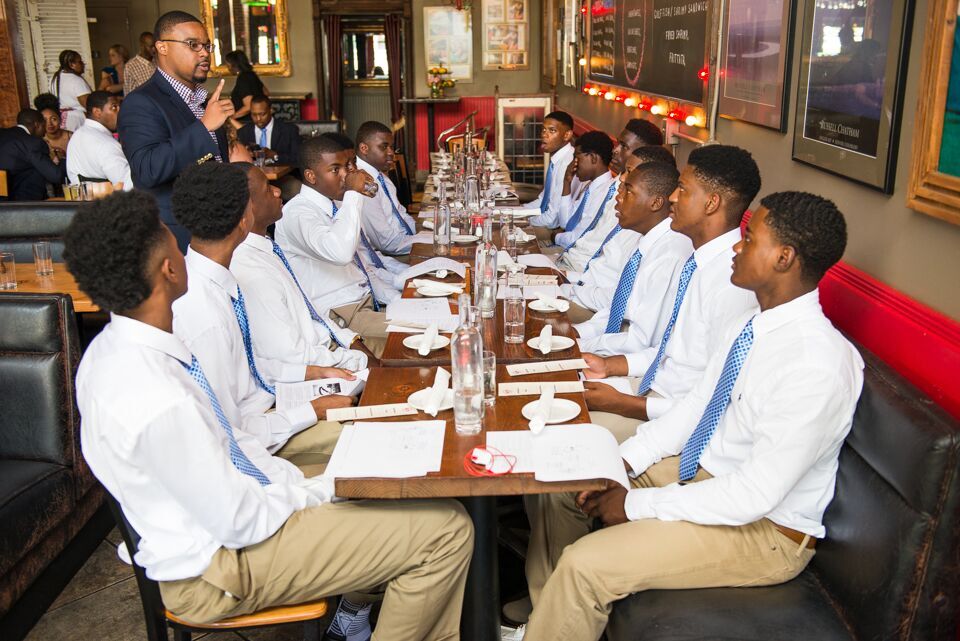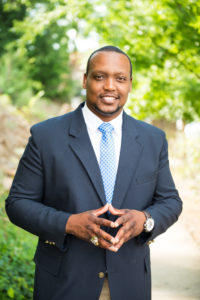By Ariel Worthy
The Birmingham Times

Chris Rogers played for Nick Saban on Alabama’s 2009 national championship team. He was the only cornerback on the squad not drafted by a National Football League team.
“I remember asking guys, ‘what’s next?’ if they didn’t make it to the NFL. The same answer kept coming back, ‘I don’t know.’ We all shared the same sentiment. We didn’t know what was next,” he said.
Rogers had an idea. He was always entrepreneurial. At age 12, he started a lawn-mowing and waste disposal business in an effort to help pay for household bills.
After graduating from Alabama with a bachelor’s degree in Consumer Science and master’s degree in Hospitality Management, he reached into his business mind again and created a program to teach athletes how to transition from intercollegiate athletics to the real world.
“I realized a lot of athletes don’t know how to interview, how to speak to people, how to do community service, how to sell themselves,” he said. “So, we just really used those principles and set up a program around it.”
Rogers, who is originally from Lakeland, Florida, is the CEO and founder of Together Assisting People (TAP), a nonprofit that prepares athletes to be successful outside of athletics. He founded the program in 2010 after the Crimson Tide defeated the University of Texas in the 2009 BCS National Championship Game.
TAP develops programs and an original curriculum catered to what young athletes face, and helps them “find purpose and direction.” They currently work with middle and high school students throughout the county.
“We have kids at Morehouse, Alabama A&M, South Alabama, South Florida, University of Alabama,” he said. “We have so many of them at school; we just want to send them there with a fighting chance because so many drop out or come back home and end up with $30,000 in debt with no degree.”
TAP offers summer jobs for the students to help them learn additional skill sets.
“We have them working with Dannon Project, State Farm, construction, learning what’s good for them,” he said.
Students also participate in Habitat for Humanity, trash collection and make site visits with seniors.
“We want them to understand the importance of giving back to their community,” Rogers said. “We have so many athletes who make it and don’t give back . . . because they were never taught how to give back.”

Students also learn about issues athletes face like social media, domestic violence and staying out of trouble.
“If they do make it all the way, we want them to stay successful,” he said. “If they don’t make it . . . that’s fine too, let’s get them into another skillset that will make them successful; we still want them to be smart in what they do.”
TAP has helped almost 5,000 students throughout Birmingham, Mobile, Atlanta and Florida. Rogers said he sees the students as his own.
“I’m tough on them, I just expect so much out of them,” he said. “I expect them to do better than what I’ve done.”
The students see him like a father figure as well.
“I don’t have a father figure, so I look up to Chris as my father figure,” Christian Lavender, 13, said. “He keeps us on the right path.”
Lavender, a student at Putnam Middle School who participates in football, basketball and track, said he heard about the program from his aunt, and wanted to join.
“I’ve grown socially,” said Lavender, who aspires to become a tech engineer. “Before I started this program, if I would see somebody older than me I would be shy to talk to them, but now I don’t mind talking to any age.”
Parker High School football player Lavonta Bentley, who hopes to own a business, said interaction with other students is a good part of the program.
“We all came in the same,” Bentley, 16, said. “We didn’t know anybody unless they came from our school. But we all know each other and can talk to each other now.”
Jordan Embry, a 16-year-old junior at Ramsay High School, said TAP has taught him a lot about financial literacy.
“We’re learning about credit scores, and how they help us in the long run like if we want to buy a house and a car, which is something we want for our future,” he said. “We’re learning how to get and keep a good credit score so we can get the things we want in life.”
Embry, who runs track and plays football, said he wants to study either criminal justice or engineering in college.
“Chris is a great mentor,” Embry said. “I would recommend him to anybody. He’s helping all of us grow as men.”




